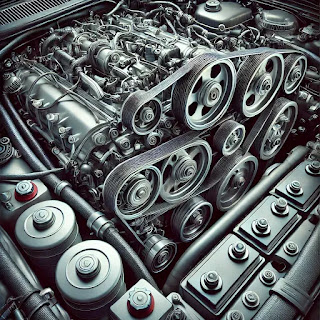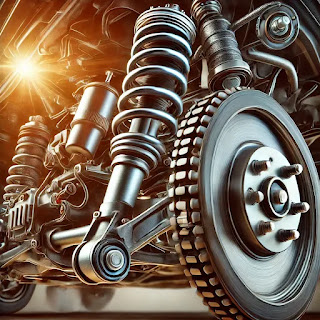Common Audi Problems: A Comprehensive Guide & Solutions
Introduction
Owning an Audi can be a thrilling experience, but like any luxury vehicle, it comes with its own set of challenges. In this overview, we'll delve into some common issues Audi owners face, discuss the reliability of Audis, and explore typical repairs and their costs.
Audi owners often report mixed experiences. While many appreciate the luxurious interiors, advanced technology, and performance, others face issues with reliability and maintenance costs. Common complaints include electrical problems, oil leaks, and failing spark plugs.
Audi's reliability has been a topic of debate. Industry rankings often place Audi below average in terms of reliability. However, consumer reports are more positive, suggesting that while Audis may require more frequent repairs, they are still dependable for many owners. Common issues include oil leaks, electrical problems, and failing spark plugs.
Common Audi Repairs and Their Costs
Here are some of the most common repairs Audi owners might encounter, along with their estimated costs:
Oil Leaks: Oil leaks are a frequent issue, especially in older models. Repair costs can range from $500 to $1,500, depending on the severity and location of the leak.
Electrical Problems: Electrical issues, such as malfunctioning sensors or wiring problems, can be costly to fix. Repairs can range from $300 to $2,000.
Failing Spark Plugs: Spark plug replacements are relatively common and can cost between $200 and $600.
Timing Chain Issues: Timing chain repairs can be expensive, with costs ranging from $1,000 to $3,000.
Oil Sludge Buildup: Oil sludge buildup in turbocharged engines can lead to significant engine damage if not addressed. Cleaning or replacing the engine can cost anywhere from $2,000 to $5,000.
Audi Reliability Issues
Audi has a mixed reputation when it comes to reliability. While some models are praised for their performance and build quality, others have been criticized for frequent issues. Common problems reported by Audi owners include:
Oil Leaks: Many owners have reported oil leaks, especially in older models.
Electrical Problems: Electrical issues are quite common, particularly in older vehicles.
Timing Chain Failures: Some Audi models, especially those with the EA888 2.0-liter engine, have experienced timing chain failures.
Sunroof Leaks: Defects in the sunroof drainage system can lead to leaks and water damage.
Excessive Oil Consumption: Several models have been reported to consume oil excessively.
Repair History and Long-Term Ownership
Maintaining an Audi can be costly, and the repair history is crucial for understanding its long-term reliability. Regular servicing and using authorized Audi service centers can help mitigate some of these issues. Audi's digital service records make it easier to track maintenance and repairs.
Owner Complaints
Audi owners have voiced their concerns on various forums and review sites. Some of the most frequent complaints include:
Mechanical Issues: Frequent mechanical problems, especially with the engine and transmission.
Customer Service: Inconsistent customer service experiences, with some owners feeling unsupported by the manufacturer.
High Repair Costs: High costs for repairs and maintenance, which can be a significant financial burden.
Forum Discussions
Online forums are filled with discussions from Audi owners sharing their experiences and advice. These forums can be a valuable resource for prospective buyers and current owners looking for solutions to common problems.
Most Common Audi Problems and Solutions
Audi Engine Problems:
Oil Consumption Problems in Audi Engines
Audi engines, especially older models, are known to consume oil at a higher rate. This can be due to several factors, including worn piston rings, faulty PCV (Positive Crankcase Ventilation) systems, and worn valve seals1. To address this, consider using high-quality synthetic motor oil and replacing any worn-out parts.
Audi Timing Chain Problems and Repair Costs
Timing chain issues are prevalent in certain Audi models, particularly those with 2.0 TFSI, 2.0 TSI, 3.2, and 3.6 engines. A stretched timing chain can lead to engine damage if not addressed promptly. Repair costs can be significant, ranging from $1,000 to $3,000, depending on the extent of the damage and whether the cylinder head needs to be removed.
Audi Water Pump Problems: Causes and Solutions
Audi water pumps are prone to failure, often due to faulty seals or impellers. Common signs include coolant leaks, overheating, and unusual noises. To fix this, it's essential to replace the faulty water pump and ensure regular coolant system maintenance. Repair costs can vary, but replacing a water pump typically costs between $500 and $1,000.
Audi Transmission Problems
The Direct-Shift Gearbox (DSG) is a type of dual-clutch transmission that automates two separate manual gearboxes and clutches within a single housing. Common issues include:
Jerky or rough gear changes: often caused by solenoid valve failures or malfunctioning mechatronic units.
Transmission slipping: can occur due to worn-out clutch packs.
Overheating: May happen due to low transmission fluid levels or leaks.
Noises: Unusual sounds like whining or clunking can indicate internal problems.
Audi CVT (Multitronic) Transmission Defects
The multitronic CVT (Continuously Variable Transmission) is known for its smooth gear shifts but can have issues such as:
Transmission Control Module (TCM) failures: Can cause flashing PRND indicators and require reprogramming or replacement.
Transmission slipping: often due to chain wear or oil pump issues.
Delayed response: Can feel sluggish from a dead stop.
Fluid leaks: Regular oil changes are crucial to prevent early burnout.
Symptoms of Audi Transmission Failure
Common symptoms to watch out for include:
Unusual noises: Whining, humming, or clunking sounds.
Delayed or erratic shifting: Slow or incorrect gear changes.
Transmission slipping: Unexpected gear changes or loss of power.
Fluid leaks: pools of red or dark brown fluid under the car.
Warning lights: Transmission or check engine lights on the dashboard.
Repair Options
Repair options depend on the specific issue but may include:
Mechatronic unit replacement: For DSG transmissions.
Clutch pack replacement: For slipping gears.
Transmission fluid change: Regular maintenance to prevent overheating and leaks.
TCM reprogramming or replacement: For CVT issues.
Sensor repairs: Fixing electrical glitches.
Audi Electrical Problems
It sounds like you're dealing with some frustrating electrical issues in your Audi! Here's a brief overview of each problem and potential solutions:
Audi MMI Infotainment System Failure
The MMI (Multi Media Interface) system can fail due to software glitches, blown fuses, or overheating. Resetting the MMI, checking and replacing fuses, and inspecting the amplifier and fiber optic cables are common fixes.
Audi Virtual Cockpit Display Issues
The virtual cockpit can experience display glitches or complete failures. This might be due to software issues, faulty display panels, or wiring problems3. Software updates and, in some cases, replacing the display unit might be necessary.
Audi Battery Drain Issues
Battery drain can be caused by faulty electrical components, parasitic draws, or extreme weather conditions. Regular battery checks, ensuring proper installation of aftermarket accessories, and using a battery maintainer can help prevent these issues.
Audi Alternator Faults
An alternator fault can lead to a drained battery and poor electrical performance. Testing the alternator and replacing it if necessary can resolve this issue.
If you're experiencing any of these issues, it might be a good idea to consult with a professional mechanic or visit an Audi service center for a thorough diagnosis and repair. Do you have any specific symptoms or details about your Audi's issues that you'd like to share?
Audi Suspension Problems
Audi suspension issues can vary across different models, but some common defects include:
Worn control arm bushings: These can cause vibrations and clunking noises, especially when braking or accelerating.
Damaged shock absorbers: Worn shock absorbers can lead to excessive bouncing and reduced ride quality.
Faulty ball joints: Loose or worn ball joints can cause clunking sounds and affect steering stability.
Sway bar link issues: Worn or damaged sway bar links can result in rattling noises and poor handling.
Air suspension problems: Common in models like the A8 and Q7, air suspension issues can lead to uneven ride height and compressor failures.
Audi Air Suspension Problems: Costly Repairs
Air suspension systems provide a smooth ride but can be expensive to repair when they fail. Common issues include:
Air spring leaks: These can cause the vehicle to sit lower than usual.
Compressor failures: A failing compressor can lead to a loss of suspension height.
Valve block issues: Faulty valve blocks can disrupt the air flow, causing suspension problems.
Sensor malfunctions: Faulty height sensors can lead to incorrect suspension adjustments.
How to Identify and Fix Suspension Noise Issues
Identifying and fixing suspension noise involves a few steps:
Visual Inspection: Check for visible signs of wear or damage on suspension components like bushings, shocks, and struts.
Road Test: Drive the vehicle to pinpoint when and where the noise occurs. Listen for clunks, squeaks, or rattles.
Check Mounting Points: Ensure all bolts and nuts are tight and secure.
Inspect Bushings: Look for cracks or excessive wear in rubber bushings.
Test Components: Use a pry bar to check for play in ball joints and control arms.
Audi Brake Problems
Brake Pad Wear Issues and Replacement Costs
Audi brake pads typically need replacement when they wear down to about 3 mm. Common signs include squeaking or grinding noises, longer stopping distances, and a spongy brake pedal2. The cost to replace brake pads on an Audi ranges from $150 to $300, depending on the model and whether you replace the rotors as well.
ABS Sensor Problems
ABS (Anti-lock Braking System) sensor issues can trigger warning lights and affect braking performance. Symptoms include the ABS light coming on, the car not responding properly to braking, and sometimes even gear shifting problems4. Replacing an ABS sensor usually involves diagnosing the faulty sensor, removing it, and installing a new one.
Brake System Recalls
Audi has had several recalls related to brake systems over the years. These recalls often involve issues with the brake pads, rotors, or ABS sensors6. It's important to check if your vehicle is affected by any recalls and get the necessary repairs done at an authorized service center.
Audi Cooling System Problems
Audi Overheating Issues: Causes and Fixes
Overheating in Audi vehicles can be caused by several factors, including:
Low coolant levels: Ensure the coolant level is adequate.
Faulty thermostat: A malfunctioning thermostat can prevent coolant from circulating properly.
Coolant leaks: Leaks in the cooling system can lead to a loss of coolant.
Clogged radiator: A blocked radiator can hinder proper heat dissipation.
Water pump failure: The water pump circulates coolant, and its failure can cause overheating.
Audi Radiator Leaks and Coolant System Failures
Radiator leaks can occur due to:
Corrosion: Over time, the radiator can corrode, leading to leaks.
Faulty seals: Worn-out seals can cause coolant to leak.
Accidental damage: Road debris or accidents can puncture the radiator.
Audi Thermostat Problems and Replacement Costs
A faulty thermostat can lead to overheating and requires replacement. The cost for replacing an Audi thermostat typically ranges from $752 to $842, including parts and labor.
Regular maintenance and timely repairs can help prevent these issues. If you're experiencing any specific symptoms, it might be best to consult with a professional mechanic for a thorough diagnosis and repair.
Audi Fuel System Problems
A failing fuel pump can cause several noticeable symptoms, including:
Whining noise: A high-pitched whining sound from the fuel tank when the engine is running.
Stalling: The engine may stall or struggle to start due to low fuel pressure.
Engine sputtering: The engine may sputter or lose power, especially at high speeds.
Difficulty starting: The car may have trouble starting or require multiple attempts to turn over.
Power loss: A sudden loss of power when accelerating.
Carbon Buildup in Audi Direct Injection Engines
Direct injection engines in Audi vehicles are prone to carbon buildup on the intake valves. This can lead to:
Check engine light: The check engine light may come on.
Misfiring: The engine may misfire due to restricted airflow.
Loss of power: Reduced engine performance and power.
Poor fuel economy: Decreased fuel efficiency.
Hard starts: Difficulty starting the engine
Audi Fuel Injector Problems and Solutions
Fuel injector issues can manifest as:
Rough idle: The engine may idle unevenly.
Poor fuel economy: Decreased fuel efficiency due to improper fuel delivery.
Misfires: The engine may misfire, causing a loss of power.
Difficulty starting: The engine may struggle to start.
Engine stalling: The engine may stall, especially at idle.
To address these issues, it's important to have the fuel injectors cleaned or replaced if necessary. Regular maintenance and using high-quality fuel can help prevent these problems.
Audi Interior and Exterior Problems
Leather peeling: This can occur on seats and the dashboard, often due to poor quality materials or exposure to sunlight.
Dashboard cracking: Cracks can develop over time, especially in areas exposed to heat and sunlight.
Audi Exterior Problems
Exterior issues can include:
Paint defects: These can manifest as peeling, bubbling, or flaking paint.
Rust issues: Rust can develop, particularly around wheel arches and other areas prone to moisture.
Audi Warranty Coverage
Audi's warranty typically covers:
Basic warranty: Covers defects in materials and workmanship for 2 years or 20,000 miles, whichever comes first.
Paint and corrosion warranty: Covers rust and paint defects for 12 years without mileage limitations.
Extended warranty: Available for purchase, extending coverage for up to 5 years beyond the standard warranty.
It's important to check your specific warranty terms and conditions for detailed coverage information.
Audi quattro Problems: All-Wheel Drive System Issues
Audi Quattro System Malfunctions and Repair Costs
The Audi Quattro all-wheel drive system is known for its reliability, but like any complex system, it can experience issues. Common malfunctions include:
Faulty control modules: These can cause the drive system to malfunction, leading to error messages on the dashboard.
Actuator failures: When actuators fail, the suspension system may not adapt properly to different driving conditions.
Sensor issues: Faulty sensors can disrupt the proper functioning of the Quattro system.
Repair costs can vary depending on the specific issue but generally range from $500 to $2,000 for parts and labor.
Common Complaints from Audi Owners Club Discussions
Audi owners often discuss various issues on forums and clubs. Some common complaints include:
Timing chain problems: Particularly in the EA888 2.0-liter engine, which can lead to catastrophic engine failure.
Sunroof leaks: Defects in the sunroof drainage system can cause water to leak into the vehicle.
Start-stop system defects: Issues with the start-stop technology can lead to problems with power steering and braking systems.
Turbocharged oil sludge: Some engines have been known to develop oil sludge, leading to engine problems.
- DSG transmission shifting issues: Problems with the dual-clutch transmission can cause violent shaking during gear shifts.
Audi Maintenance Costs and Service Issues
Audi Service Issues: Dealership vs. Independent Shops
When it comes to servicing your Audi, you have two main options: dealership service centers and independent shops. Dealerships often have certified technicians and access to genuine Audi parts, but they can be more expensive. Independent shops, especially those specializing in Audi/Volkswagen vehicles, can offer competitive rates and sometimes more personalized service. However, it's crucial to ensure they use genuine parts and have experienced technicians to avoid potential issues.
Audi Maintenance Costs Compared to Other Luxury Brands
Audi maintenance costs are generally higher compared to other luxury brands. On average, Audi owners can expect to pay around $987 per year for maintenance and repairs, which is higher than the industry average of $646. Compared to other luxury brands like BMW ($968) and Mercedes-Benz ($908), Audi still tends to be on the pricier side.
How to Reduce Common Audi Repair Expenses
Here are some tips to help reduce common Audi repair expenses:
Regular Maintenance: Stick to Audi's recommended maintenance schedule to catch issues early and prevent costly repairs.
Extended Warranties: Consider purchasing an extended warranty or AudiCare plan to cover unexpected repairs.
DIY Repairs: If you're comfortable with basic car maintenance, consider doing some repairs yourself, such as oil changes or brake replacements.
Shop Around: Compare prices from different repair shops and negotiate for the best rates.
- Use Quality Parts: Ensure that any replacement parts used are genuine Audi parts to avoid future issues
Explore More:- Most Beautiful Car in the World?
- BMW i8 & Tesla Model X: Common Problem
- Best Mercedes-Benz Models for 2025
- Best Audi Models for Young Professionals
- Top 10 Most Reliable Car Brands in the USA 2025
- Most Beautiful Car in the World?
- Top 10 Most Reliable Car Brands in the USA 2025
- Audi Vs. BMW
- Common Audi Problems
- Most Beautiful Car in the World?
- BMW i8 & Tesla Model X: Common Problem
- Best Mercedes-Benz Models for 2025
- Best Audi Models for Young Professionals
- Top 10 Most Reliable Car Brands in the USA 2025
- Most Beautiful Car in the World?
- Top 10 Most Reliable Car Brands in the USA 2025
- Audi Vs. BMW
- Common Audi Problems
Frequently Asked Questions (FAQs) About Common Audi Problems
Are Audis reliable cars?
Are Audis reliable cars?
What are the most common problems Audi owners face?
Are Audi repairs expensive?
How can I reduce Audi repair costs?
Where can I find information about Audi recalls?
Why does my Audi leak oil?
What are the symptoms of a failing Audi transmission?
Transmission problems can manifest as jerky shifting, slipping gears, delayed engagement, unusual noises, or even complete transmission failure.My Audi's MMI system is not working. What should I do?
Try resetting the MMI system first. If that doesn't work, check fuses. If the problem persists, it may require a software update or component replacement.My Audi is consuming a lot of oil. Is this normal?
What are the signs of a timing chain problem in an Audi?
Where should I take my Audi for service?
Where can I find other Audi owners to discuss problems and solutions?
What should I look for when buying a used Audi?
How reliable are Audis compared to other luxury brands?
Audis rank mid-tier in reliability compared to other luxury brands like BMW and Mercedes. While they offer high performance and technology, their maintenance needs can be higher.
At what mileage do Audi problems start appearing?
Are Audis expensive to maintain?Yes, Audis typically have higher maintenance costs than non-luxury brands due to their advanced engineering, specialized parts, and the need for certified mechanics.
Conclusion
Audi vehicles offer a blend of luxury, performance, and cutting-edge technology. However, they are not immune to defects and reliability concerns. Common issues include engine problems, transmission malfunctions, electrical glitches, suspension defects, brake issues, and cooling system failures. While these concerns can be costly and inconvenient, regular maintenance and prompt attention to issues can help mitigate many of these problems.
How to Maintain an Audi to Avoid Frequent Repairs
Regular Maintenance: Stick to Audi's recommended maintenance schedule, including oil changes, fluid checks, and brake inspections.
Quality Parts: Always use genuine Audi parts for replacements to ensure compatibility and performance.
Timely Repairs: Address issues as soon as they arise to prevent them from becoming more serious and costly.
Proper Storage: Protect your Audi from extreme weather conditions by parking in a garage or using a car cover.
Driving Habits: Avoid aggressive driving and allow your car to warm up before driving, especially in cold weather.
Where to Find Trusted Audi Repair Shops and Support Forums
Authorized Audi Service Centers: These centers have certified technicians and access to genuine Audi parts.
Independent Audi Specialists: Look for independent shops with a good reputation and experience in Audi repairs.
Online Forums: Join Audi owner communities like AudiWorld, Audizine, and the Audi Owners Club. These forums offer valuable insights, advice, and support from fellow Audi enthusiasts.
Social Media Groups: Facebook and Reddit have active Audi groups where you can ask for recommendations and share experiences.
By following these tips and staying informed, you can enjoy the luxury and performance of your Audi while minimizing the impact of common issues. If you have any further questions or need specific advice, feel free to ask!
%20in%20a%20professional%20garage%20setting.%20A%20mechanic%20is%20inspecting%20the%20car's%20engine%20wi.webp)













Comments
Post a Comment